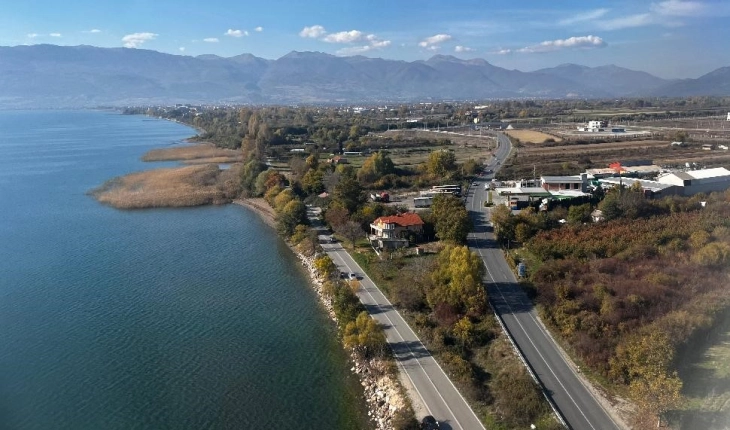UN experts, environmentalists: Lake Ohrid at risk from pollution, overfishing, urban development
- Lake Ohrid is at risk from pollution, overfishing, and urban development, United Nations experts and environmentalists warn.

Ohrid, 31 October 2024 (MIA) – Lake Ohrid is at risk from pollution, overfishing, and urban development, United Nations experts and environmentalists warn.
As media covering environmental issues report, citing world agencies, the lake is one of Europe's oldest, dating back 3.5 million years, and is home to around 200 unique species, including rare varieties of trout.
It serves as a significant tourist attraction and revenue source for North Macedonia and Albania.
The agencies note that the North Macedonia side of Lake Ohrid was declared a World Heritage Site in 1979 and UNESCO expanded the designation to the Albanian side of the lake in May 2019.
In its 2024 report earlier this year, UNESCO warned about the poor quality of real estate development around the lake and over tourism around the coast. Also, UN experts warned both North Macedonia and Albania that measures to address existing threats and prevent new ones, have not been put in place.
"The state of conservation of the property is not improving and there is no positive trend to begin to restore its integrity," UNESCO said in a press release.
Biologist Zlatko Lefkov said pollution "is constantly getting worse" and that it is taking a toll on native species and the lake's biodiversity.
"Some previously rare or absent species are ... seizing living space from biologically important or relic species," said Lefkov.
According to official data, the agencies report, the area around Lake Ohrid, which includes the towns of Ohrid and Struga on the Macedonian side and Pogradec in Albania, is home to around 170,000 people, an estimated 56% increase over the past 50 years.
Local authorities say investments in the sewage system, built in the 1980s, are needed as it can no longer handle scores of tourists, who flock to the lake as a cheaper alternative to the sea, Orhidea Tasevska, manager at the hydrobiological institute in Ohrid, said.
"There are project proposals ... , but the state must find funds to put these proposals into practice,” she added.
Environmentalists also warn that rivers flowing into Lake Ohrid and smaller coastal settlements are constant pollution sources.
Photo: MIA







